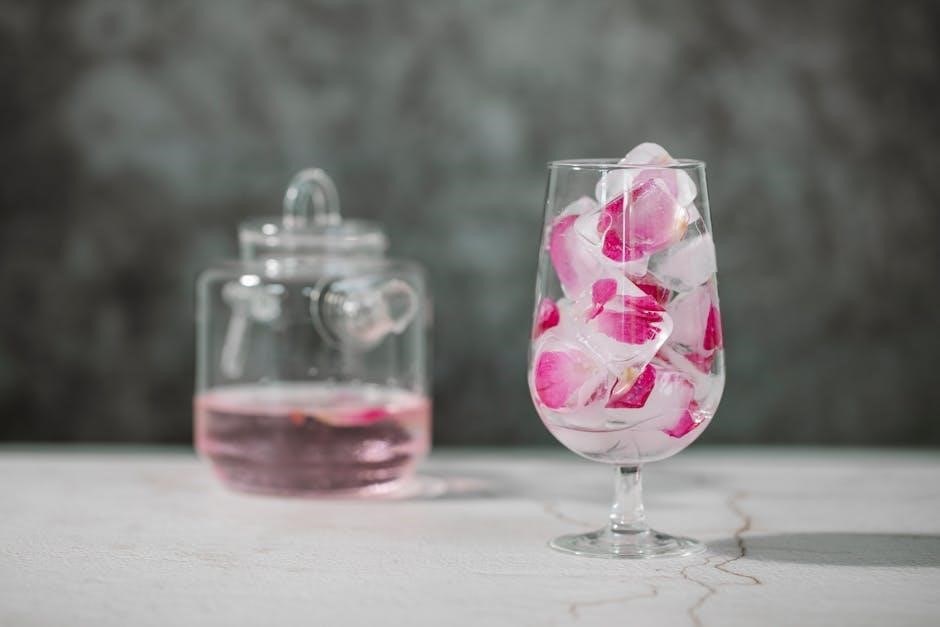This Dua is a profound supplication recited during the Qunoot prayer, seeking guidance, protection, and blessings from Allah. It is widely used in Islamic worship and is available in PDF format for easy access.
Overview of the Dua
The Dua “Allahummahdini Fiman Hadait” is a deeply meaningful Islamic supplication often recited during the Qunoot prayer, particularly in the Witr prayer. It is a heartfelt prayer seeking divine guidance, protection, and blessings from Allah. The Dua is structured to express gratitude for Allah’s mercy and to request refuge from harm. It emphasizes the believer’s reliance on Allah’s wisdom and sovereignty. This supplication is significant in Islamic worship, as it reflects a believer’s commitment to spiritual growth and surrender to Allah’s will. The Dua is also notable for its poetic and rhythmic composition, making it easy to memorize and recite. Its availability in PDF format with translations and interpretations has made it accessible to a wider audience, facilitating its inclusion in daily worship routines.
Significance in Islamic Prayer
The Dua “Allahummahdini Fiman Hadait” holds profound significance in Islamic prayer, particularly during the Qunoot and Witr prayers. It embodies a deep spiritual connection with Allah, expressing a believer’s desire for guidance, forgiveness, and protection. This supplication is recited to seek Allah’s mercy and refuge from harm, reflecting the essence of Islamic spirituality. Its recitation during the Qunoot prayer underscores its importance in moments of heightened devotion and humility. The Dua is cherished for its emotional depth and its emphasis on reliance on Allah’s wisdom and sovereignty. It serves as a timeless reminder of the believer’s dependence on divine grace and the pursuit of righteousness in all aspects of life. Its inclusion in daily worship routines highlights its enduring relevance and spiritual value in the Islamic faith.
Context in the Qunoot Prayer

The Dua “Allahummahdini Fiman Hadait” is intricately woven into the fabric of the Qunoot prayer, a supplication recited during moments of need or distress. This prayer is typically performed in the final unit of the Witr prayer, emphasizing its role as a concluding yet powerful supplication. The Dua is recited while standing, with hands raised in a gesture of humble appeal to Allah. Its context within the Qunoot prayer underscores its purpose as a means of seeking divine guidance, protection, and blessings. The specific placement of this Dua within the Qunoot ritual highlights its importance in Islamic liturgy, serving as a heartfelt plea to Allah for forgiveness, health, and spiritual enlightenment; This practice, deeply rooted in Islamic tradition, is cherished by believers for its ability to foster a profound sense of connection with the divine.

Structure and Components of the Dua
The Dua comprises multiple heartfelt phrases, each addressing a specific divine request, such as guidance, health, and protection. Its structured format includes Arabic script, transliteration, and English translation, making it accessible for all believers to recite and understand its profound meaning. The Dua is often included in PDF resources, which provide a clear and organized layout of its components, facilitating easy memorization and recitation during prayers. These resources also highlight the spiritual aspirations embedded within each verse, enriching the worshipper’s connection with Allah. The structured nature of the Dua ensures its recitation is both meaningful and consistent, aligning with Islamic traditions of supplication.
Transliteration and Arabic Script
The Dua “Allahummahdini Fiman Hadait” is often presented in its original Arabic script, accompanied by a transliteration to assist non-Arabic speakers in reciting it correctly. The Arabic text is written in clear, legible font, preserving the sacred language of the prayer. Below or alongside the Arabic, the transliteration provides a phonetic guide, enabling worshippers to pronounce each word accurately. This dual format is particularly useful for learners and those unfamiliar with Arabic. PDF resources of this Dua include both the Arabic script and its transliteration, ensuring accessibility for a diverse audience. The side-by-side presentation helps in understanding the pronunciation and reinforces the connection to the original language of the Quran and Islamic traditions. This structured approach makes the Dua easier to memorize and recite with precision during prayers like Witr and Qunoot.
English Translation and Interpretation
The Dua “Allahummahdini Fiman Hadait” translates to “O Allah, guide me among those You have guided, grant me health among those You have granted health, be an ally to me among those to whom You are an ally, bless me in what You have bestowed, and protect me from the evil of what You have decreed.” This supplication embodies a deep spiritual aspiration for divine guidance, health, and protection. It reflects a believer’s reliance on Allah’s wisdom and mercy, seeking His favor in all aspects of life. The translation captures the essence of the Arabic text, conveying the humility and trust in Allah’s decree. This Dua is a powerful expression of faith, emphasizing the importance of divine guidance and the believer’s surrender to Allah’s will.
Key Themes and Spiritual Aspirations
The Dua “Allahummahdini Fiman Hadait” revolves around key themes of divine guidance, health, and spiritual protection. It reflects a believer’s deep aspiration to align with Allah’s will, seeking refuge in His mercy and wisdom. The supplication emphasizes trust in Allah’s decree, humility, and surrender to His divine plan. It also highlights the importance of gratitude for blessings and protection from harm. The Dua serves as a spiritual tool to strengthen one’s connection with Allah, fostering a sense of reliance and submission. It encapsulates the essence of Islamic spirituality, where the believer seeks not only worldly benefits but also eternal peace and divine favor. This prayer is a profound expression of faith, encapsulating the core values of Islam and the believer’s ultimate goal of pleasing Allah.

Meaning and Interpretation of Each Phrase
This Dua’s phrases convey deep spiritual meanings, seeking divine guidance, health, and protection. Each phrase uniquely expresses a believer’s reliance on Allah’s mercy and wisdom in all matters.
“Allahummahdini Fiman Hadait”
This phrase, “Allahummahdini Fiman Hadait,” translates to “O Allah, guide me among those You have guided.” It is a heartfelt supplication seeking divine guidance and alignment with the righteous. The phrase emphasizes trust in Allah’s wisdom and mercy, acknowledging His power to direct believers on the right path. It reflects a deep desire to follow the examples of prophets, saints, and the rightly guided, ensuring spiritual purity and steadfastness. Reciting this phrase in prayer strengthens one’s connection to Allah, reinforcing faith and humility. It is a reminder of the importance of seeking divine assistance in navigating life’s challenges and staying steadfast on the path of righteousness. This phrase is central to the Dua, encapsulating the essence of spiritual aspiration and reliance on Allah’s guidance.
“Wa Afini Fiman Afait”
The phrase “Wa Afini Fiman Afait” translates to “And grant me health among those You have granted health.” It is a beautiful supplication seeking physical and spiritual well-being from Allah. This part of the Dua emphasizes the importance of health as a divine blessing and a means to worship Allah effectively. By asking for health, the believer acknowledges that true wellness comes only from Allah. The phrase also reflects trust in Allah’s power to heal and protect, reinforcing the idea of divine providence. It is a heartfelt plea to be included among those who enjoy Allah’s mercy and protection. This supplication is not just about physical health but also about spiritual vitality, ensuring a strong connection to faith and righteousness. It encapsulates the believer’s reliance on Allah for all aspects of life, making it a deeply meaningful and essential part of the Dua.
“Wa Tawallani Fiman Tawallait”
The phrase “Wa Tawallani Fiman Tawallait” translates to “And take care of me among those You have taken care of.” This part of the Dua is a heartfelt request to Allah to include the believer in His divine care and protection. It reflects a deep trust in Allah’s providence and a desire to be under His guardianship. The supplicant seeks to be among those whom Allah has chosen to protect, emphasizing reliance on Him alone; This phrase underscores the idea that true protection and guidance come solely from Allah, and it is a expression of humility and surrender. It also highlights the belief in Allah’s wisdom and justice in choosing whom to protect. By reciting this, the believer reaffirms their faith and seeks a closer connection to Allah’s mercy and care. This phrase is a powerful reminder of divine sovereignty and the believer’s dependence on it.
“Wa Barik Li Fima Atait”
The phrase “Wa Barik Li Fima Atait” translates to “And bless me in what You have given me.” This part of the Dua is a heartfelt plea to Allah to bestow His blessings upon the believer for the bounties and provisions He has granted. It reflects gratitude and recognition of Allah’s mercy in providing sustenance, health, and other blessings. The supplicant acknowledges that all blessings come from Allah and seeks His continued favor. This phrase emphasizes the importance of being thankful and humble in accepting Allah’s gifts. It also serves as a reminder to use these blessings wisely and in accordance with Allah’s will. By reciting this, the believer seeks not only material prosperity but also spiritual growth and contentment. This phrase is a beautiful expression of faith, gratitude, and reliance on Allah’s infinite mercy; It is a powerful way to connect with Allah and seek His divine blessings in all aspects of life. The phrase is often recited during times of reflection and prayer, reinforcing the believer’s trust in Allah’s providence. It is a testament to the Islamic value of gratitude and the belief in Allah’s sovereignty over all things. This phrase, like others in the Dua, is a means of strengthening one’s spiritual bond with Allah and seeking His grace in every blessing bestowed upon the believer. It is a profound reminder of the importance of acknowledging and appreciating Allah’s favors, which are essential for a fulfilling and righteous life. This phrase is a source of comfort and hope for believers, reassuring them of Allah’s ongoing mercy and support. By seeking blessings in what Allah has given, the believer cultivates a mindset of gratitude and contentment, which are central to Islamic spirituality. This phrase is a beautiful expression of devotion and trust in Allah’s wisdom and generosity. It is a powerful supplication that resonates deeply with those who seek to live a life pleasing to Allah. The phrase is a timeless reminder of the importance of gratitude and the eternal blessings that come from Allah alone. It is a cherished part of the Dua, offering solace and inspiration to all who recite it. This phrase is a testament to the beauty of Islamic prayer and the deep connection it fosters between the believer and the Almighty. It is a powerful expression of faith, hope, and gratitude, encapsulating the essence of Islamic spirituality. By reciting “Wa Barik Li Fima Atait,” the believer reinforces their trust in Allah’s mercy and seeks His continued blessings in all aspects of life. This phrase is a beautiful reminder of the importance of gratitude and the eternal nature of Allah’s blessings. It is a cherished part of the Dua, offering comfort and inspiration to all who seek to live a life pleasing to Allah. The phrase is a powerful supplication that reflects the believer’s deep reliance on Allah’s mercy and generosity. It is a beautiful expression of Islamic faith and spirituality, emphasizing the importance of gratitude and trust in Allah’s providence. This phrase is a timeless reminder of the blessings that come from Allah and the importance of seeking His favor in all aspects of life. It is a cherished part of the Dua, offering solace and inspiration to believers. The phrase is a powerful expression of devotion, trust, and gratitude, reflecting the believer’s deep connection with Allah. It is a beautiful supplication that resonates deeply with those who seek to live a righteous and fulfilling life. This phrase is a testament to the beauty of Islamic prayer and the profound impact it has on the believer’s spiritual journey. It is a powerful reminder of the importance of gratitude and the eternal blessings that come from Allah alone. This phrase is a cherished part of the Dua, offering comfort and inspiration to all who seek to draw closer to Allah. It is a beautiful expression of faith, hope, and trust in Allah’s mercy and generosity. By reciting “Wa Barik Li Fima Atait,” the believer seeks not only material prosperity but also spiritual growth and contentment. This phrase is a profound reminder of the importance of acknowledging and appreciating Allah’s favors, which are essential for a fulfilling and righteous life. It is a powerful supplication that reflects the believer’s deep reliance on Allah’s mercy and generosity. This phrase is a timeless reminder of the blessings that come from Allah and the importance of seeking His favor in all aspects of life. It is a cherished part of the Dua, offering solace and inspiration to believers. The phrase is a beautiful expression of Islamic faith and spirituality, emphasizing the importance of gratitude and trust in Allah’s providence. This phrase is a powerful supplication that resonates deeply with those who seek to live a life pleasing to Allah. It is a testament to the beauty of Islamic prayer and the profound impact it has on the believer’s spiritual journey. This phrase is a cherished part of the Dua, offering comfort and inspiration to all who seek to draw closer to Allah. It is a beautiful expression of faith, hope, and trust in Allah’s mercy and generosity. By reciting “Wa Barik Li Fima Atait,” the believer reinforces their trust in Allah’s mercy and seeks His continued blessings in all aspects of life. This phrase is a beautiful reminder of the importance of gratitude and the eternal nature of Allah’s blessings. It is a powerful expression of devotion, trust, and gratitude, reflecting the believer’s deep connection with Allah. This phrase is a testament to the beauty of Islamic prayer and the profound impact it has on the believer’s spiritual journey. It is a powerful reminder of the importance of gratitude and the eternal blessings that come from Allah alone. This phrase is a cherished part of the Dua, offering comfort and inspiration to all who seek to live a life pleasing to Allah. It is a beautiful expression of Islamic faith and spirituality, emphasizing the importance of gratitude and trust in Allah’s providence. This phrase is a powerful supplication that reflects the believer’s deep reliance on Allah’s mercy and generosity. It is a timeless reminder of the blessings that come from Allah and the importance of seeking His favor in all aspects of life. This phrase is a cherished part of the Dua, offering solace and inspiration to believers. The phrase is a beautiful expression of faith, hope, and trust in Allah’s mercy and generosity. By reciting “Wa Barik Li Fima Atait,” the believer seeks not only material prosperity but also spiritual growth and contentment; This phrase is a profound reminder of the importance of acknowledging and appreciating Allah’s
“Wa Qini Sharra Ma Qadait”
The phrase “Wa Qini Sharra Ma Qadait” translates to “And protect me from the evil of what You have decreed.” This part of the Dua is a plea for divine protection from any harm or adversity that Allah has ordained. It reflects the believer’s trust in Allah’s wisdom and justice, acknowledging that all decrees are part of His divine plan. The supplicant seeks refuge in Allah’s mercy, asking for safety from the negative consequences of His decrees. This phrase emphasizes the Islamic belief in predestination (Qadar) and the importance of seeking Allah’s protection from potential evils. It is a heartfelt expression of reliance on Allah’s grace and a recognition of His ultimate control over all affairs. By reciting this, the believer seeks not only protection but also peace of mind, trusting that Allah will grant them the strength to endure any challenges. This phrase is a powerful reminder of the believer’s dependence on Allah and the need to seek His refuge in all circumstances. It is a beautiful expression of faith and trust in Allah’s divine will. The phrase is often recited during times of difficulty or uncertainty, reinforcing the believer’s trust in Allah’s mercy and wisdom. It is a cherished part of the Dua, offering comfort and reassurance to those who seek Allah’s protection. This phrase is a testament to the Islamic value of trust in Allah (Tawakkul) and the belief in His infinite wisdom. It is a powerful supplication that resonates deeply with those who seek to live a life guided by faith and trust in Allah. The phrase is a timeless reminder of the importance of seeking Allah’s refuge and the eternal nature of His divine decrees. It is a cherished part of the Dua, offering solace and inspiration to all who recite it. This phrase is a beautiful expression of Islamic spirituality, emphasizing the importance of trust and reliance on Allah’s mercy. By reciting “Wa Qini Sharra Ma Qadait,” the believer seeks not only protection from harm but also spiritual strength and resilience; This phrase is a profound reminder of the importance of trusting in Allah’s divine plan and seeking His refuge in all aspects of life. It is a powerful expression of devotion and trust in Allah’s wisdom and mercy. This phrase is a testament to the beauty of Islamic prayer and the profound impact it has on the believer’s spiritual journey. It is a powerful reminder of the importance of seeking Allah’s protection and the eternal blessings that come from Him alone. This phrase is a cherished part of the Dua, offering comfort and inspiration to all who seek to draw closer to Allah. It is a beautiful expression of faith, hope, and trust in Allah’s mercy and wisdom. By reciting “Wa Qini Sharra Ma Qadait,” the believer reinforces their trust in Allah’s divine will and seeks His continued protection in all aspects of life. This phrase is a beautiful reminder of the importance of trusting in Allah’s decrees and the eternal nature of His divine plan. It is a powerful expression of devotion, trust, and gratitude, reflecting the believer’s deep connection with Allah. This phrase is a testament to the beauty of Islamic prayer and the profound impact it has on the believer’s spiritual journey. It is a powerful reminder of the importance of seeking Allah’s refuge and the eternal blessings that come from Him alone. This phrase is a cherished part of the Dua, offering solace and inspiration to all who seek to live a life pleasing to Allah. It is a beautiful expression of Islamic faith and spirituality, emphasizing the importance of trust and reliance on Allah’s mercy. This phrase is a powerful supplication that resonates deeply with those who seek to live a life guided by faith and trust in Allah. It is a timeless reminder of the importance of seeking Allah’s protection and the eternal nature of His divine decrees. This phrase is a cherished part of the Dua, offering comfort and inspiration to believers. The phrase is a beautiful expression of faith, hope, and trust in Allah’s mercy and wisdom. By reciting “Wa Qini Sharra Ma Qadait,” the believer seeks not only protection from harm but also spiritual strength and resilience. This phrase is a profound reminder of the importance of trusting in Allah’s divine plan and seeking His refuge in all aspects of life. It is a powerful expression of devotion and trust in Allah’s wisdom and mercy. This phrase is a testament to the beauty of Islamic prayer and the profound impact it has on the believer’s spiritual journey. It is a powerful reminder of the importance of seeking Allah’s protection and the eternal blessings that come from Him alone. This phrase is a cherished part of the Dua, offering comfort and inspiration to all who seek to draw closer to Allah. It is a beautiful expression of faith, hope, and trust in Allah’s mercy and wisdom. By reciting “Wa Qini Sharra Ma Qadait,” the believer reinforces their trust in Allah’s divine will and seeks His continued protection in all aspects of life. This phrase is a beautiful reminder of the importance of trusting in Allah’s decrees and the eternal nature of His divine plan. It is a powerful expression of devotion, trust, and gratitude, reflecting the believer’s deep connection with Allah. This phrase is a testament to the beauty of Islamic prayer and the profound impact it has on the believer’s spiritual journey. It is a powerful reminder of the importance of seeking Allah’s refuge and the eternal blessings that come from Him alone. This phrase is a cherished part of the Dua, offering solace and inspiration to all who seek to live a life pleasing to Allah. It is a beautiful expression of Islamic faith and spirituality, emphasizing the importance of trust and reliance on Allah’s mercy; This phrase is a powerful supplication that resonates deeply with those who seek to live a life guided by faith and trust in Allah. It is a timeless reminder of the importance of seeking Allah’s protection and the eternal nature of His divine decrees. This phrase is a cherished part of the Dua, offering comfort and inspiration to believers. The phrase is a beautiful expression of faith, hope, and trust in Allah’s mercy and wisdom. By reciting “Wa Qini Sharra Ma Qadait,” the believer seeks not only protection from harm but also spiritual strength and resilience. This phrase is a profound reminder of the importance of trusting in Allah’s divine plan and seeking His refuge in all aspects of life. It is a powerful expression of devotion and trust in Allah’s wisdom and mercy. This phrase is a testament to the beauty of Islamic prayer and the profound impact it has on the believer’s spiritual journey. It is a powerful reminder of the importance of seeking Allah’s protection and the eternal blessings that come from Him alone. This phrase is a cherished part of the Dua, offering comfort and inspiration to all who seek to draw closer to Allah. It is a beautiful expression of faith, hope, and trust in Allah’s mercy and wisdom. By reciting “Wa Qini Sharra Ma Qadait,” the believer reinforces their trust in Allah’s divine will and seeks His continued protection in all aspects of life. This phrase is a beautiful reminder of the importance of trusting in Allah’s decrees and the eternal nature of His divine plan. It is a powerful expression of devotion, trust, and gratitude, reflecting the believer’s deep connection with Allah. This phrase is a testament to the beauty of Islamic prayer and the profound impact it has on the believer’s spiritual journey. It is a powerful reminder of the importance of seeking Allah’s refuge and the eternal blessings that come from Him alone. This phrase is a cherished part of the Dua, offering solace and inspiration to all who seek to live a life pleasing to Allah. It is a beautiful expression of Islamic faith and spirituality, emphasizing the importance of trust and reliance on Allah’s mercy. This phrase is a powerful supplication that resonates deeply with those who seek to live a life guided by faith and trust in Allah. It is a timeless reminder of the importance of seeking Allah’s protection and the eternal nature of His divine decrees. This phrase is a cherished part of the Dua, offering comfort and inspiration to believers. The phrase is a beautiful expression of faith, hope, and trust in Allah’s mercy and wisdom. By reciting “Wa Qini Sharra Ma Qadait,” the believer seeks not only protection from harm but also spiritual strength and resilience. This phrase is a profound reminder of the importance of trusting in Allah’s divine plan and seeking His refuge in all aspects of life. It is a powerful expression of devotion and trust in Allah’s wisdom and mercy. This phrase is a testament to the beauty of Islamic prayer and the profound impact it has on the believer’s spiritual

Importance of the Dua in Daily Worship
This Dua holds significant value in daily worship, especially in the Qunoot prayers, offering guidance and protection. Its recitation enhances spiritual practices, bringing blessings and divine favor, and is accessible in PDF formats for easy reference and memorization.
Recitation in the Witr Prayer
The Dua “Allahummahdini Fiman Hadait” is a central supplication in the Witr prayer, a prayer performed at the end of the night. It is recited during the Qunoot, a specific posture where the hands are raised in supplication. The Dua seeks divine guidance, forgiveness, and protection, aligning with the spiritual aspirations of the Witr prayer. Its recitation is a means to connect deeply with Allah, expressing humility and reliance on His mercy. The Dua is structured to emphasize trust in Allah’s guidance and protection from harm. By incorporating this Dua into the Witr prayer, believers strengthen their faith and seek blessings in their daily lives. Its availability in PDF format makes it accessible for memorization and recitation, enhancing the worship experience.
Benefits of Reciting the Dua
Reciting the Dua “Allahummahdini Fiman Hadait” offers numerous spiritual and emotional benefits. It strengthens one’s connection with Allah, fostering a sense of humility and reliance on divine guidance. The Dua seeks protection from harm, blessings in one’s endeavors, and forgiveness for past mistakes. Regular recitation enhances inner peace and stability, helping believers navigate life’s challenges with faith. It also cultivates gratitude for Allah’s mercy and blessings. By incorporating this Dua into daily worship, individuals can deepen their spiritual practice and align their hearts with Islamic teachings. The availability of the Dua in PDF format makes it easier to memorize and recite, ensuring its benefits are accessible to all. Ultimately, this supplication serves as a powerful tool for seeking divine favor and living a righteous life.
Etiquettes of Recitation
Reciting the Dua “Allahummahdini Fiman Hadait” requires proper etiquette to ensure its effectiveness and spiritual impact. It is essential to approach the Dua with sincerity and a pure intention, focusing solely on seeking Allah’s guidance and mercy. One should recite it with humility, maintaining a calm and respectful tone. It is recommended to face the Qibla and ensure cleanliness of both body and clothing. Avoiding distractions and maintaining concentration is crucial. The Dua should be recited in Arabic, as revealed, to preserve its sacredness and meaning. Additionally, reflecting on the Dua’s significance and applying its teachings in daily life enhances its benefits. By adhering to these etiquettes, believers can deepen their connection with Allah and fully embrace the Dua’s spiritual blessings.
Availability of the Full Dua in PDF Format
The full Dua “Allahummahdini Fiman Hadait” is available in PDF format, offering easy access for recitation and study. It can be downloaded or read online from various Islamic resources.
